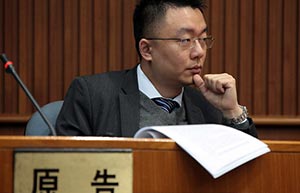China resorts to judicial protection in green push
(Xinhua) Updated: 2013-07-22 14:56GUIYANG - By putting an eco-court, an eco-procuratorial bureau and an eco-public security branch into operation earlier this year, Guiyang, capital city of an underdeveloped inland province, is leading China in building a justice system that involves all three arms of judicial forces to promote ecological progress.
Serious pollution in the city led to the establishment of an environmental court in Guiyang at the end of 2007, the first court of its kind in the country. Today, China has more than 130 environmental courts nationwide, as pollution has become a more prominent issue that needs tackled.
"Setting up specialized ecological courts could break the limitations of administrative areas and reduce interference from various parties," said Luo Guangqian, the environmental court's presiding judge.
In the past five years, the court had concluded 619 environmental cases involving water, land and air pollution, punishing 477 polluters. Among them were 13 major public interest environmental litigation cases, which account for half of such cases nationwide.
"For a long time, China has mainly relied on administrative measures to manage and supervise environmental affairs and curb pollution," said national legislator Wang Qingxi, noting that judicial forces have been playing a relatively minor role in environmental protection.
The results proved unsatisfactory, as China has faced worsening pollution problems in its air, soil and water and the public has become less tolerant of environmental hazards.
Apart from innovative local measures, judicial forces, responding to public calls to play bigger role, are also gaining momentum in ecological protection at the national level.
Last month, the country's supreme court and procuratorate jointly issued a new judicial explanation aimed at easing difficulties in investigating environmental pollution cases and convicting polluters by setting down more precise criteria for convictions and sentencing.
- Lufthansa Cargo strengthens its presence in China
- China battles for rags-to-riches stories
- Cars, models at 10th Manila Intl Auto Show
- Jack Ma to acquire 20% of Wasu Media
- XP's demise helps Chinese IT developers
- GM planning lower-priced version of 2016 Chevy Volt
- TV debate in Boao Forum for Asia Annual Conference
- White swans seen on Ulunggur Lake, Xinjiang

















